Jeffrey Dunn, associate professor of philosophy and executive director of The Prindle Institute and Andrea Young, vice president for finance and administration, co-taught "Game Theory in Society" this fall.
Game theory is a mathematical theory that models interactions between multiple rational agents who are trying to maximize their own rewards under the assumption that the other agents are doing the same. Game theory allows us to model simple, traditional games like tic-tac-toe, where each player is trying to beat the other. But it can do more than this. Two firms setting a price for a product are also playing a kind of game where the goal is to maximize profits. Game theory can help us think about these kinds of interactions, too. Given this, it is widely taught in economics departments and business schools.
Neither of us are economists; one of us is a philosopher and one of us is a mathematician. We were drawn to the topic of game theory as relevant to the new School of Business and Leadership and one that is particularly ripe for team teaching. It’s a mathematical theory with accessible techniques that can be developed without advanced mathematics knowledge. Philosophers use game theory to explore questions about whether cooperation is in our self-interest, about the emergence of conventions, and about the origins of morality. By bringing our different disciplinary perspectives to the classroom, we are able to engage students in different ways of thinking and knowing, which is one of the goals of a liberal arts education. That we are able to do this within one of the SBL’s new active learning classrooms provides just one example of how DePauw’s approach to business and leadership education is unique.
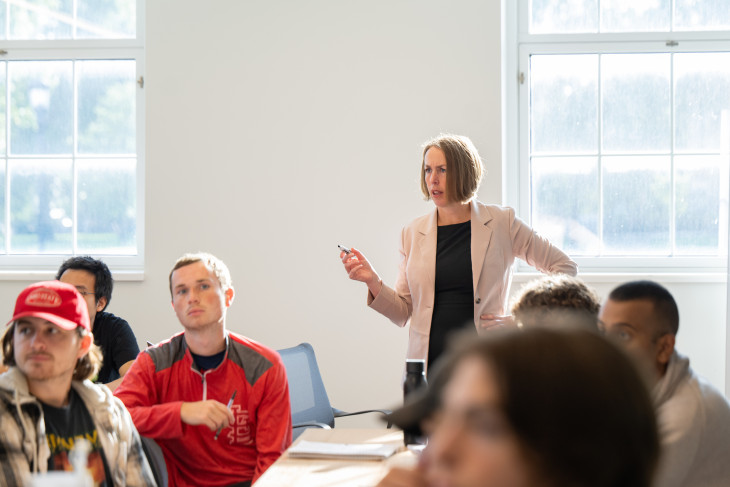
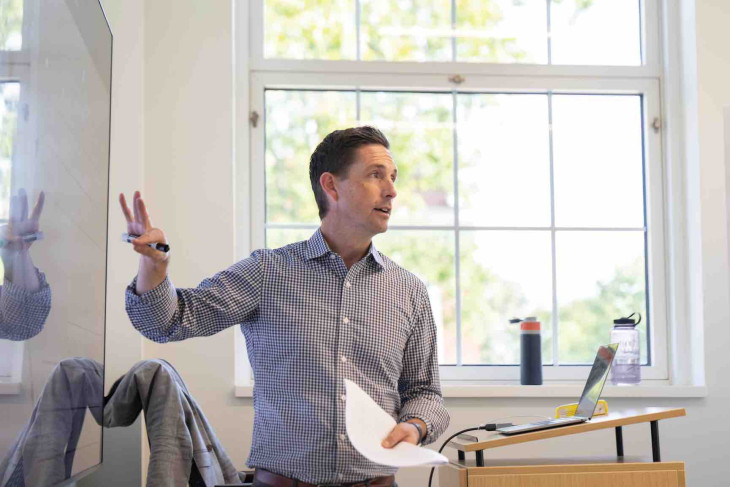
Browse other stories
-
Athletics
-
Football - 336 Students Named to 2025 Spring Tiger Pride Honor Roll
-
Football - DePauw-Record 190 Student-Athletes Named to NCAC's Dr. Gordon Collins Scholar-Athlete Honor Roll
-
Football - DePauw Unveils 2025 Athletics Hall of Fame Class
More Athletics
-
-
News
-
Outstanding scholars named to Spring 2025 Dean's List
-
Alumni News Roundup - June 6, 2025
-
Transition and Transformation: Inside the First-Year Experience
More News
-
-
People & Profiles
-
11 alums make list of influential Hoosiers
-
DePauw welcomes Dr. Manal Shalaby as Fulbright Scholar-in-Residence
-
DePauw Names New Vice President for Communications and Strategy and Chief of Staff
More People & Profiles
-
-
Have a story idea?
Whether we are writing about the intellectual challenge of our classrooms, a campus life that builds leadership, incredible faculty achievements or the seemingly endless stories of alumni success, we think DePauw has some fun stories to tell.
-
Communications & Marketing
101 E. Seminary St.
Greencastle, IN, 46135-0037
communicate@depauw.eduNews and Media
-
News media: For help with a story, contact:
Bob Weaver, Senior Director of Communications.
bobweaver@depauw.edu.
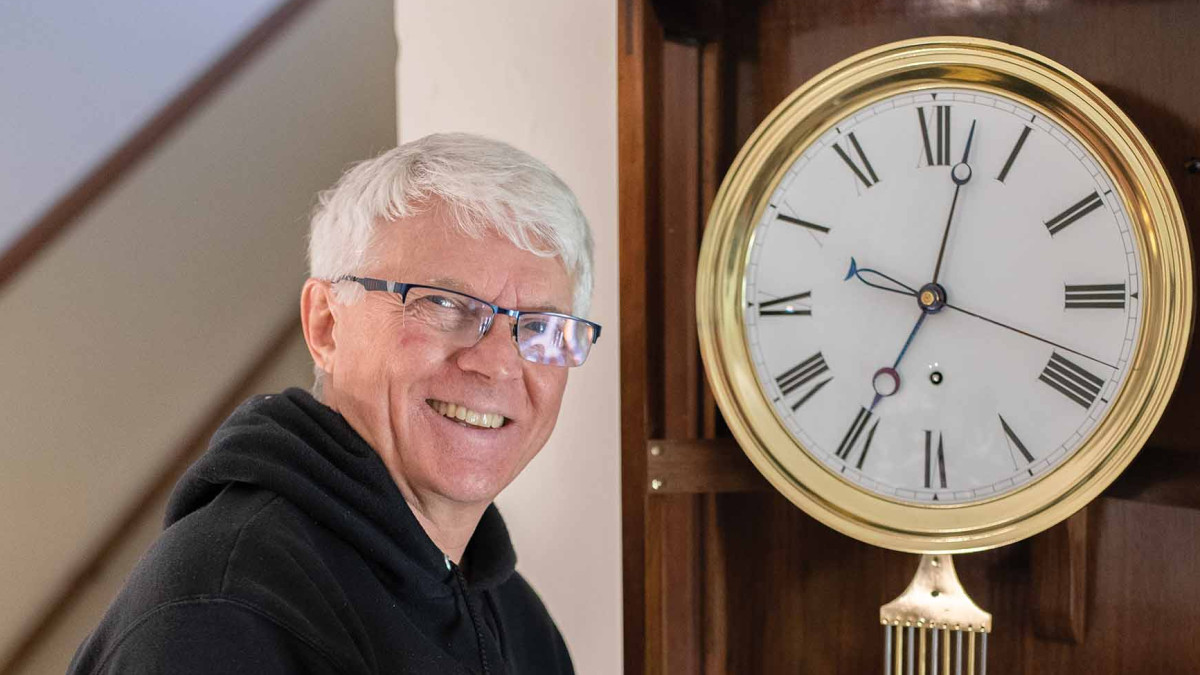 Time for DePauw
Time for DePauw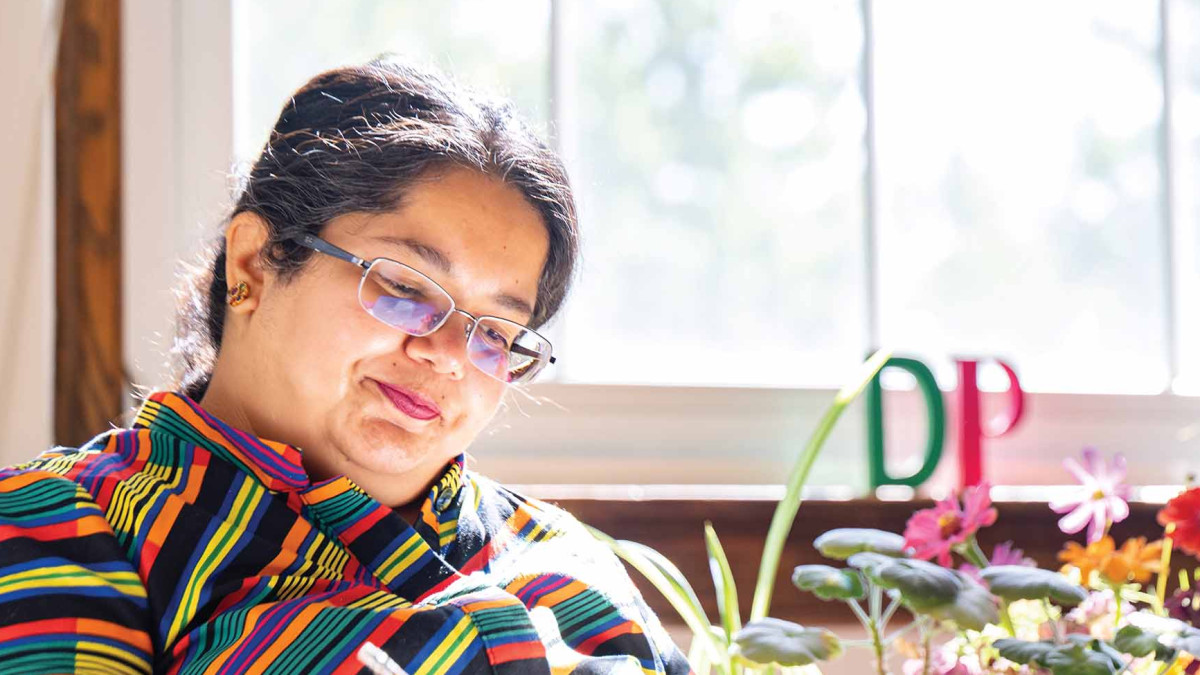 In their element
In their element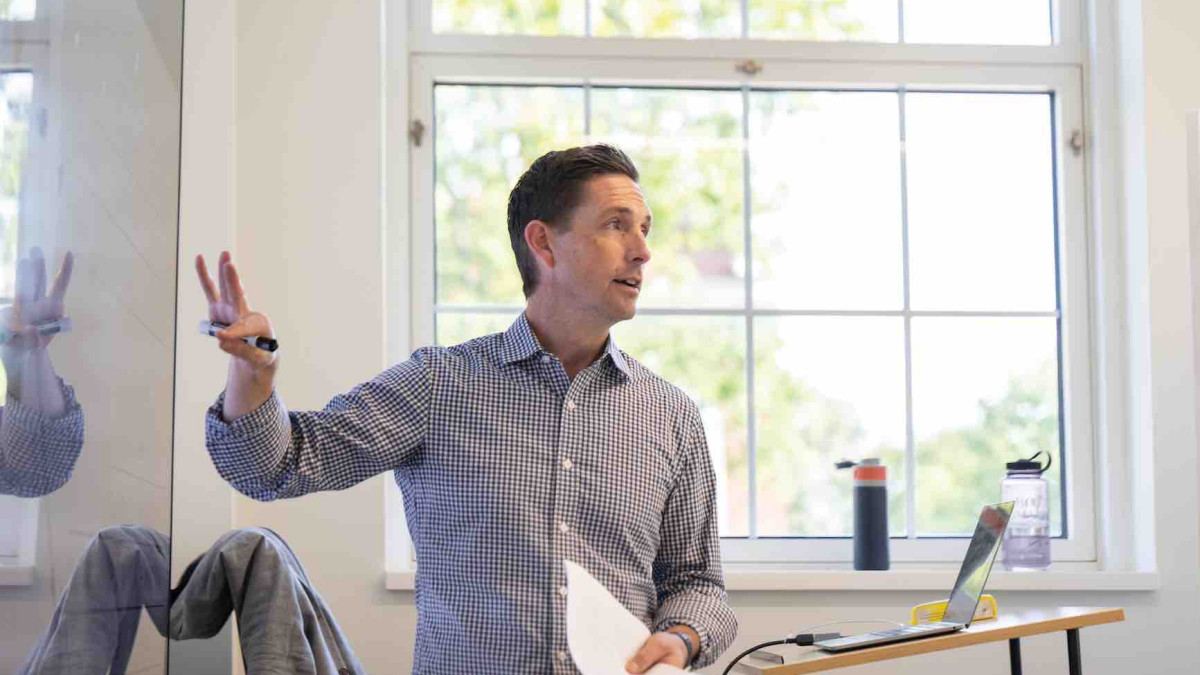 Game Theory
Game Theory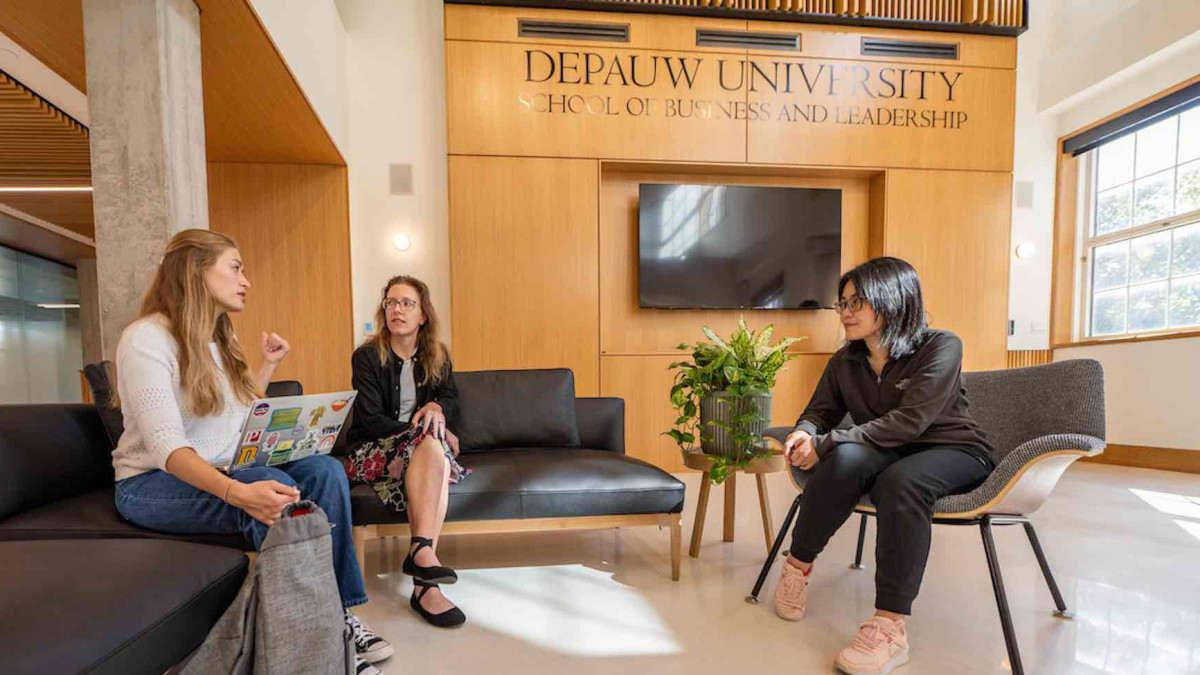 The School of Business and Leadership at a Glance
The School of Business and Leadership at a Glance